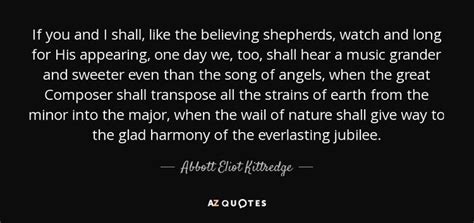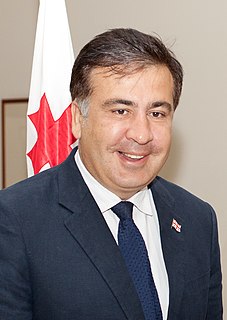A Quote by Friedrich August von Hayek
Economic transactions between national bodies who are at the same time the supreme judges of their own behavior, who bow to no superior law, and whose representatives cannot be bound by any considerations but the immediate interest of their respective nations, must end in clashes of power.
Related Quotes
A miracle is a supernatural event, whose antecedent forces are beyond our finite vision, whose design is the display of almighty power for the accomplishment of almighty purposes, and whose immediate result, as regards man, is his recognition of God as the Supreme Ruler of all things, and of His will as the only supreme law.
That elections of members to serve as representatives of the people, in assembly, ought to be free; and that all men, having sufficient evidence of permanent common interest with, and attachment to, the community, have the right of suffrage, and cannot be taxed or deprived of their property for public uses, without their own consent, or that of their representives so elected, nor bound by any law to which they have not, in like manner, assembled, for the public good.
If the resources of different nations are treated as exclusive properties of these nations as wholes, if international economic relations, instead of being relations between individuals, become increasingly relations between whole nations organized as trading bodies, they inevitably become the source of friction and envy between whole nations.
Thirdly, the supreme power cannot take from any man any part of his property without his own consent: for the preservation of property being the end of government, and that for which men enter into society, it necessarily supposes and requires, that the people should have property, without which they must be supposed to lose that, by entering into society, which was the end for which they entered into it; too gross an absurdity for any man to own.
Before a standing army can rule, the people must be disarmed; as they are in almost every kingdom of Europe. The supreme power in America cannot enforce unjust laws by the sword; because the whole body of the people are armed, and constitute a force superior to any band of regular troops that can be, on any pretence, raised in the United States.
America is a large country and its people have so far not shown much interest in great international problems, among which the problem of disarmament occupies first place today. This must be changed, if only in America's own interest. The last war has shown that there are no longer any barriers between the continents and that the destinies of all countries are closely interwoven. The people of this country must realize that they have a great responsibility in the sphere of international politics. The part of passive spectator is unworthy of this country and is bound in the end to lead to disaster all round.
The economic freedom which is the prerequisite of any other freedom cannot be the freedom from economic care which the socialist promise us, and which can be obtained only by relieving the individual at the same time of the necessity and of the power of choice: it must be the freedom of economic activity which, with the right of choice, inevitably also carries the risk and the responsibility of that right
It is left... to the juries, if they think the permanent judges are under any bias whatever in any cause, to take on themselves to judge the law as well as the fact. They never exercise this power but when they suspect partiality in the judges; and by the exercise of this power they have been the firmest bulwarks of English liberty.
Is the United States going to decide, are the people of this country going to decide that their Federal Government shall in the future have no right under any implied power or any court-approved power to enter into a solution of a national economic problem, but that that national economic problem must be decided only by the States?... We thought we were solving it, and now it has been thrown right straight in our faces. We have been relegated to the horse-and-buggy definition of interstate commerce.



































